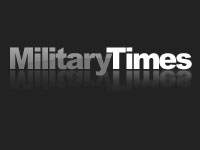By LAWRENCE DOWNES
The war on terror, which has now lasted longer than World War II, is producing a growing family of combat veterans. It’s a disconnected family, large and far-flung, but close in ways that battle-tested soldiers always are.
I saw that for myself the other day in Stony Point, N.Y., at a church conference center as tranquil and green as Iraq and Afghanistan are not. It was a weekend workshop run by Vets 4 Vets, a Tucson nonprofit that is setting up peer support groups around the country for a new generation of veterans.
Most of those attending — two dozen men and two women — had never met, but they immediately opened up to one another, sharing war stories that some said they had never told anyone. These were not disabled vets — not visibly, anyway. But after two days, listening from a chair outside their circle, it was clear this was a wounded group.
Michael Rudulph: “A lot of times my anger, my frustration, feels totally, 100 percent justified. But in the back of my head I know that’s messed up.”
Kevin Cajas: “We were exposed to trauma so much we became addicted to it. We became trauma junkies. It doesn’t go away, so you’ve just got to learn how to manage it. I liked it; I’m not going to lie.”
Everyone had a transition story. Shifting from “hunter-killer mode” to husband-student mode is so sudden, it’s insane. One day you’re in Baghdad, the next you’re in Atlanta, passing rows of cheering civilians at Hartsfield airport. Then you get on with your life. The price is steep, in sleepless nights, troubled consciences and buried anger.
People have no idea, the veterans said. Ryan Knudson, from Phoenix, told me what a lifeguard at a pool had asked him: “Is it, like, all warry over there?”
Yes it is. Do you want to hear about it? No, said Mr. Knudson, you probably don’t.
Mr. Cajas: “We were the go-to platoon. When you’re on the go, you’re in a manic rage of violence, nonstop. My body’s just accustomed to that. I picked up my friends’ body parts. My roommate got his face blown off.”
Mr. Cajas was in a quick-reaction force, the guys who knock down doors. “We did a good job,” he said. “The irony of service is, we did a good job, and came back different. This is what it does to humans. The analogy we used was prison. We were locked in the base, and every time we were released, we had to go kill people. We acted like animals because that’s what we were.”
It was hard to watch them beat up on themselves, although their intense expressions of guilt seemed like signs of intact souls. One veteran told me he was haunted by the realization that any trauma he suffered was multiplied a hundredfold for the Iraqis he shot at.
Some gave me tips to pass on to the civilian world: Don’t ask The Question (Did you kill anybody?). “Support the Troops” magnets mean nothing to them. And military culture is not big on touching: the main things civilians want to do to soldiers — hug them and get them drunk — are generally not welcome.
Vets 4 Vets has only a few hundred members in about a dozen cities. Its founder, Jim Driscoll, has roots in the antiwar movement, but insists that this group is apolitical. Nor does it make therapeutic claims; nobody who runs its workshops is a qualified therapist.
Is there a place in the age of antidepressants for Vietnam-style rap sessions? It seems so. Tens of thousands of soldiers are coming back next year. The Department of Veterans Affairs has ramped up outreach at its hospitals and Vet Centers, but demand is great. Military officials always complain about how hard it is to get soldiers to talk about their problems. A lot of veterans say professional help feels useless. Some of those at Stony Point were adamant that medication checks and group therapy every few months didn’t add up to much.
Kevin Cottrell, a former medic, said that at his group sessions, he sat between an old Vietnam guy and a sailor who had been in Bahrain, and had nothing to say to either of them. But after last weekend, he said, he wanted to start a Vets 4 Vets chapter in his area.
The veterans broke into small groups, for the workshop’s most wrenching part. At a picnic table under a tree, Mr. Cottrell shared worst-moment stories with Michael Gillespie, Stephen Wade and a workshop leader, Abel Moreno. He told about trying frantically to save a soldier whose truck had been blown up, who had lost parts of both legs, and died in the hospital.
Mr. Wade then told of phoning his wife, who put her new boyfriend on the line. She called him a bad husband for going to Iraq. He is praying a judge grants him custody of his little girl.
Mr. Wade fell silent, distraught. Mr. Moreno said the next step was usually a hug. They began an awkward, 45-degree guy hug, patting each other’s backs. Mr. Gillespie joined them, and then Mr. Cottrell, a big guy, enveloped them all. They stood still for an unbearable moment, holding one another up.





